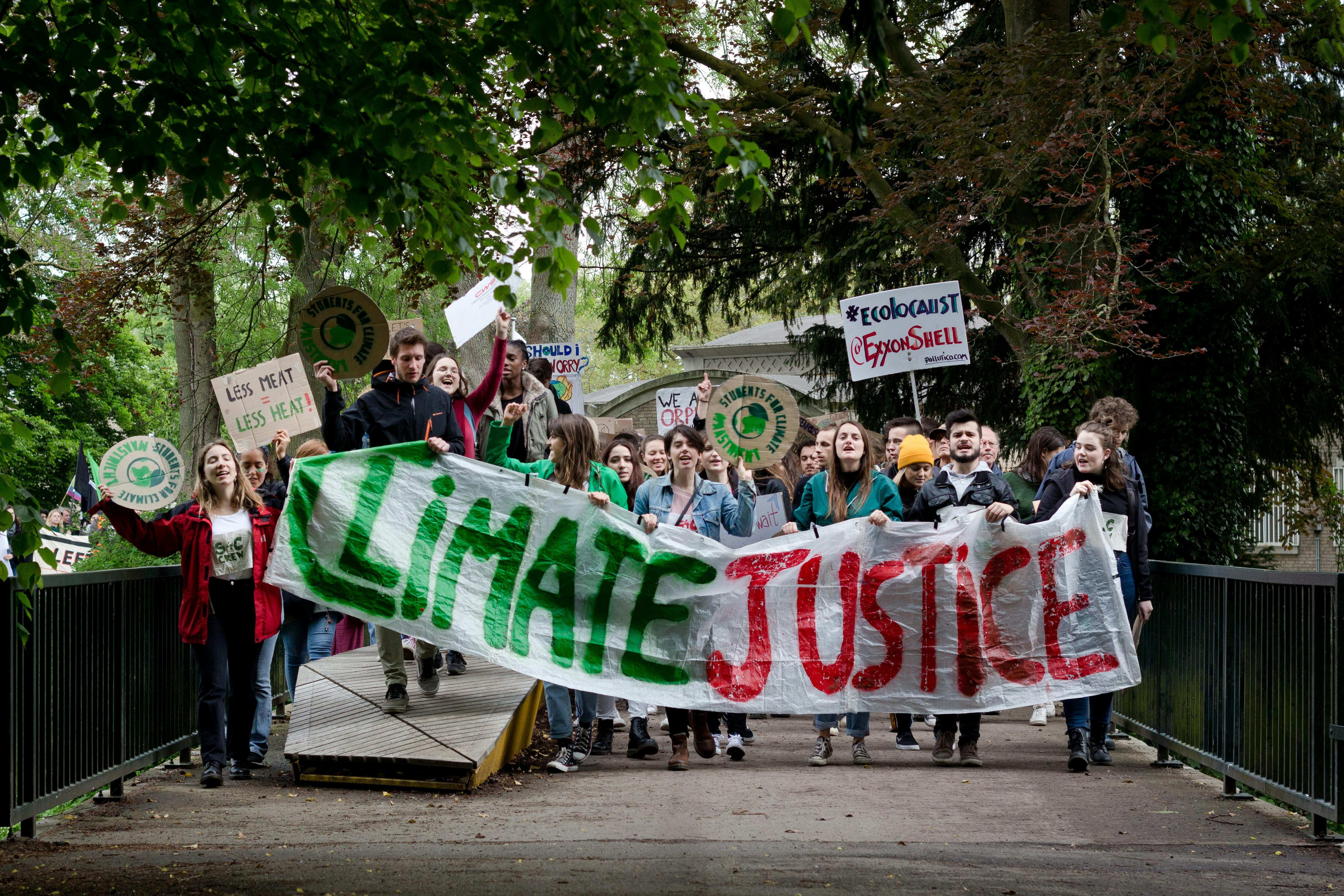A Just Circular Economy for South African Youth

The year 2024 was undoubtedly eye-opening for democracy and nations, with nearly half of the world participating in national elections. In recent years, the world has witnessed a steady erosion of democratic norms in countries across every region, combined with global climate change's continued impacts and effects. Global democracies and the current international order still struggle to address long-term challenges, such as climate change. These challenges require collective action and thinking beyond today and ourselves, as well as the pressing need for democracies to evolve and keep pace with multifaceted, difficult-to-solve issues within the context of a global, long-term environmental sustainability project. Irrespective of international political systems of governance, young women and children are the first to suffer the effects of weather-related incidents, conflicts, and poverty.
Although South Africa is a young democracy, it is a testament to resilience - not in the sense of the absence of crisis nor the absence of problems, but the ability to bounce back and stay steadfast in the respect for fundamental human rights, political tolerance, respect for the rule of law, citizen participation, good governance, equality, accountability, justice, and the key principle of Ubuntu. In South Africa, municipalities undergo challenges in performing their environmental management mandate, and curbing illegal dumping remains a major challenge in rural communities. The most significant waste stream in the country is organic waste, which can be composted to prevent it from ending up in landfill sites because decaying organic waste severely increases methane emissions. Improving waste management can facilitate climate change mitigation and create a restorative and regenerative local economy. Sustainable collection methods are urgently needed in townships to ensure that children do not endure health-threatening conditions daily.
South Africa has and is taking strides in climate action, evidenced in the cabinet-approved Just Transition Framework, which exemplifies this under three fundamental principles: Restorative, Procedural, and Distributive Justice. In implementing the Just Transition Framework, the government must integrate the circular economy to address the challenges of local townships. 2025 is crucial, as we are hosting the first-ever G20 on African soil. South Africa continues to champion and express commitment to multilateral institutions and its priorities in regional and continental engagements, reflecting the values and principles enshrined in our constitution.
As South Africa forges ahead in its G20 presidency as the first African nation to assume this role, with the core themes of ‘Solidarity, Equality and Sustainability’ guiding its negotiations, there is a clear need for a robust circular economy. South Africa's harnessing of its G20 presidency, its key engagement groups, and task forces creates a vital opportunity for the South African school curriculum to integrate knowledge sharing. This integration should focus on localizing multilateral forums on key environmental issues for learners, expanding their worldview and fostering local knowledge exchange. School subjects such as Life Orientation and Biology can further teach learners about South Africa’s role in advancing sustainability globally, the country’s Just Transition Framework, and its significant strides toward becoming a zero-waste society.
A sustainable green future must include South Africans of all racial backgrounds. I believe this green future will educate young people about their worth in creating a cleaner environment for their communities. In addition, it should not exclude Black South African youth and women from township communities. Working towards inclusivity also means rethinking decentralized economies to reinvent our economic outlook. As such, this green future must also incorporate economic development. Rethinking the waste management value chain in townships is vital for job creation, reducing poverty, and saving municipalities money. Designing bulk transfer and material recovery stations near the existing municipal landfills can enable collaboration, especially in township landfills that lack adequate public off-loading zones and have no user-friendly access points.
Youth involvement is crucial in spaces that foster learning and exposure to work, especially a conducive work environment that meets ILO standards. Through these facilities, young people can actively participate in waste separation at source, recycling, training, and re-skilling to curb illegal dumping and add value to the waste management value chain. These facilities can also expand on the biological aspect of the circular economy by teaching young people composting, especially for the most significant waste stream - organic food waste - which is essential for soil regeneration. It is imperative to engage the youth in a way that allows them to creatively identify the gaps between policy and implementation in their communities to ensure a sustainable future that reflects their lived reality. From this, empower youth to further engage local, regional, and global policymakers to advance their voices and contributions. This will enable them to participate in a long-term global sustainability project that continuously improves livelihoods amidst geopolitical and democratic transitions and global electoral cycles.
Nosipho Dube is a member of Chatham House’s Common Futures Conversations. With academic training in Development Studies and International Relations, she has engaged in diplomatic youth programs and volunteered in environmental projects from South Africa to Brazil.
Get in Touch
We'd love to hear your thoughts and feedback!

